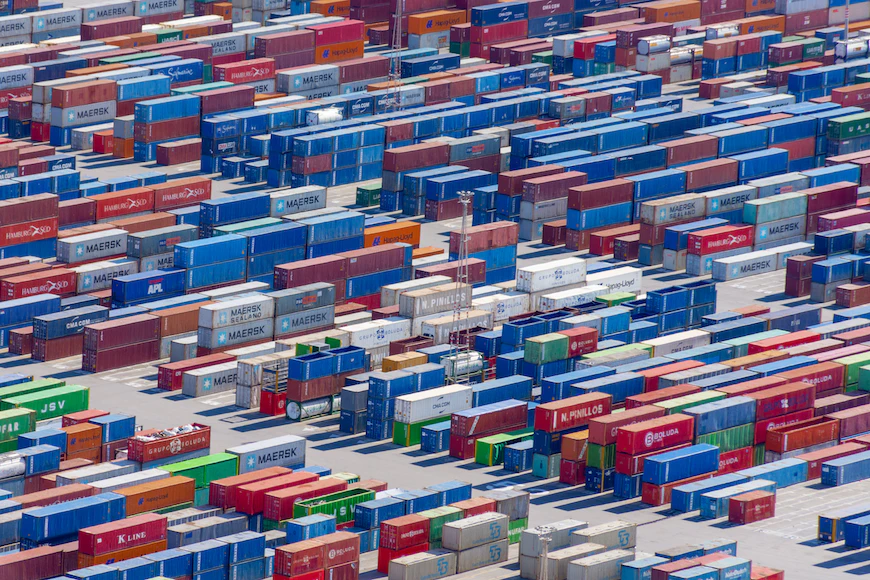Why Now is the Best Time to Establish an Import-Export Business in the Philippines? (Infographic)

The import-export sector in the Philippines is on the rise. According to Philippine Statistics Authority (PSA), the country’s total trade grew by 8.6% in December 2017, pushing a full-year trade growth to its current rate. This is better than the 5.8% full-year trade growth recorded in 2016.
Imports and exports posted 10.2 percent and 9.5 percent growth rates, respectively, exceeding the Development Budget Coordinating Committee’s emerging estimates (as of December 2017) of 9.0 percent for imports and 8.0 percent for exports.
Such improvement has made the Philippines one of the fastest growing economies in the world, according to the World Bank’s latest edition of Global Economic Prospects. As the country emerges as a growing economic hub, it is wise to ride the wave and make the most out of it by establishing an import-export business in the Philippines.
Read on as we detail in this infographic the reasons why now is the best time to establish an import-export business in the Philippines.

1. Presence of Trade Programs and Affiliations
Plenty of government and non-government organizations promote importing and exporting in the country. These organizations have programs which goal is to help aspiring importers and exporters start their business with a firm foundation as possible.
The Philippine Exporters Confederation, the Bureau of Export Trade Promotion, and the Philippine International Trading Corporation are the most popular of these groups. The Philippine government is ramping up these organizations – hoping to promote the country as a destination for foreign investment and exports.
These groups also help to negotiate trade agreements which also open many opportunities for exporters and importers. Some of the trade agreements that are currently in place are the Philippine-Japan Economic Partnership Agreement (PJEPA), ASEAN-India Comprehensive Economic Cooperation Agreement, ASEAN Free Trade Area, and ASEAN-[Republic of] Korea Comprehensive Economic Cooperation Agreement, among others.
2. Relaxing Foreign Ownership Limitations
Foreign ownership restrictions have been a significant issue in the Philippine international trading sector for many years. However, President Rodrigo Duterte is planning to ease these foreign ownership limits in Philippines businesses.
In 2017, the President has directed the National Economic Development Authority to take “immediate steps” to lift restrictions on foreign investments. The NEDA’s efforts to ease restrictions include labor recruitment, public services, rice and corn production, milling, processing, and trading – among others.
The opening of the Philippine economy reveals previously unreachable markets. Whether you are looking to set up an import-export business there, or simply find a supplier, the future is bright.
3. Monetary and Tax Incentives
The Philippines boasts 326 economic zones across the country – which are composed of export processing zones, free trade zones, and industrial estates. Establishing a trading company in economic zones can benefit you from duty-free imports, with some exemptions from particular taxes and other import restrictions as well.
The Asia Development Bank (ABD) also offers to finance to businesses looking to invest in the Philippines. Businesses can also avoid local taxes, duties on event materials, and travel fees – all depending on the situation.
4. Increased Support for Private Businesses
One of the biggest development in the Philippines international trade scene is the privatization. President Rodrigo Duterte plans to move many Government Owned and Controlled Corporations (GOCCs) into the private sector which would allow local businesses and investors to participate to previously untapped industries such as healthcare, energy, transportation, etc.
While there are domestic concerns for this shift, allowing more private businesses to participate in government projects may increase innovation and is expected to create more investment opportunities for international companies.
To be successful in the Philippines, or any international region, import-export businesses need a reliable and trustworthy logistics partner. A reliable and honest freight forwarding company provide significant advantages that will not only help you gain a competitive edge but also ensures that all your import and export transactions are done legally, ethically, on budget and on time.
If you need a helping hand on starting your import and export business today, Contact Excelsior Worldwide Freight Logistics Corp. and let us help you in your journey in the import-export industry this 2018 and beyond. Call us at (+632) 525-9775 or email us at wecare@excelsior.ph.
